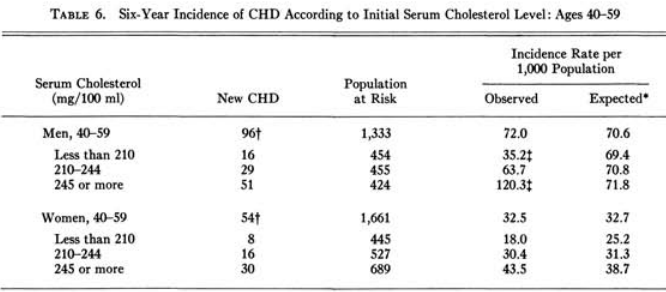Ya. They kept going up. Past tense because I took a break from Keto and so now I feel I’m on a new experiment.
First time Keto, I got labs 7 weeks in and again at 9 months. No pre tests but I have several years of history so can presume pretty confidently where they were which was always hovering within the normal ranges with the total number slowly creeping higher each year and only once going as high as 218.
At 7 weeks Total and LDL were elevated as was my particle count. I chocked this up to the fact that I was overweight and had been eating poorly prior to Keto and was also losing weight rapidly. (I’ve read that rapid loss will result in high numbers.) So, my plan was to test again once the loss slowed down and when I tested at 9 months in, my weight loss was averaging about 1 pound per month. I was at a very comfortable ideal weight. Still plenty of fat to come off slowly over time but, probably at the “last 10 pounds” point. My numbers were even worse:
Total: 491-515
HDL: 60-70
LDL: 400-435
Tri: 99-106
Tot/HDL Ratio: 7.01-8.58
Tri/HDL Ratio: 1.51-1.65
LDL-P: >3500
HDL-P: 23.3
Small LDL-P: <91
Small LDL-P % of Total: 2.60%
LDL Size: 22.7 (Pattern A - Large)
HbA1c: 4.8%
Glucose Random: 81
(There is a range because I got tests both through my regular doctor and an NMR on the same day.)
So HDL, triglycerides, and particle size were good, but the rest looks pretty bad. I couldn’t believe it. This was the best I’d felt in my adult life, even compared to when I was skinny because to stay skinny I had had to watch everything that went in to my mouth and feel deprived and hungry all the time. Being carb dependent and staying thin is almost like feeling like an addict, trying to hold out as long as possible but always thinking about that next fix and promising it’ll be just a little. Anyway, at 9 months in, the extreme opposite of how I felt and what my lipids showed brought about almost a teenager like defiance. While concerned and bothered by not having the perfect numbers that I had expected to go along with my healthy weight, I immediately just rejected the tests. All of a sudden I wasn’t able to just trust the recommended guidelines because I had first hand personal experience that I was indeed healthier. This is when I found Dave Feldman and Cholesterol Code and I began a small amount of researching. If nothing else, I was just relieved to know other people were experiencing this too and it allowed me to give myself permission to listen to my body and not make any rash decisions based on guidelines that now felt so contrary. Basically I decided to just give it time and learn and reassess as I go.
Fast forward some amount of time and I did end up going off Keto. This was not an intentional decision, it was more of a slide and crash due to extreme stress. I spent more than half a year back on the SAD diet and worse than that really just eating crap. Gained back all the weight. Realizing that was just about the dumbest thing I’d ever done, I decide to go back to low carb/Keto for good.
That was August 1st and this time I did get starting blood work. All of my numbers had reversed back into the recommended ranges except total and particle count which were both just slightly elevated. All others including ratios were good. So, again, my weight was too high, my overall feeling of health was at its lowest, if looking at a me in person, one would’ve said eeek, she’s not doing so well, yet if looking at my lipids only, one would’ve said I was in perfect health. Upon seeing my labs, I actually felt like I’d gotten away with something, like I’d cheated the system, because the way I’d been eating, I really did not deserve good cholesterol numbers. Then, I’d take a look in the mirror and oh ya, I didn’t get away with anything. So, once again, a complete disconnect between how I looked and felt and what the numbers said. I should also note that at this point, my HbA1c was starting to creep up again. Not out of range yet but at the high end of good.
So, I’m at the beginning of a new personal experiment. I completely expect to see my numbers go up and out of recommended ranges again. The only change I have made is I consciously drink less heavy cream (and no BP coffee) and I’m incorporating intermittent fasting more and am working towards extended fasting. I haven’t decide yet how often I’ll test. Wanted to do monthly but wasn’t able to get away from work around September 1st and so missed that opportunity. Maybe I’ll do every other month or quarterly instead. Dave Feldman has demonstrated just how dynamic and reactive blood cholesterol tests are within just a few days and so in my opinion a test on any one given day will be only partially informative. Wish I could see it daily!
Sorry such a ramble! I will try and remember to update when I do get my next test. And, I hope to hear what you learn and do along the way.





 )
)